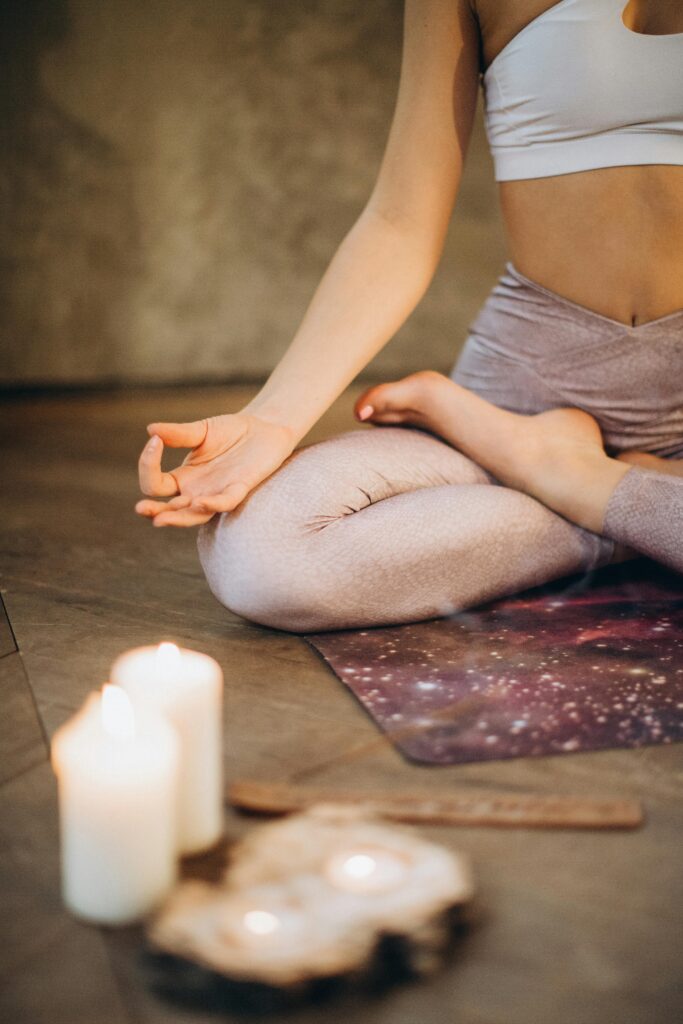Tidy Space, Tidy Mind: Unlock Peace Through Decluttering
The Connection Between a Tidy Space and a Tidy Mind

Have you ever noticed how a cluttered space can make you feel overwhelmed or unfocused? The physical environment we live in has a profound impact on our mental clarity and emotional well-being. The concept of “Tidy Space, Tidy Mind” emphasizes how decluttering not only creates a more organized living space but also fosters mindfulness and mental peace.
In this article, we’ll explore the vital role of decluttering in mindfulness, its impact on mental health, and actionable steps you can take to create a harmonious balance between your surroundings and inner self.
What Does “Tidy Space, Tidy Mind” Mean?
The Psychological Impact of Clutter
Clutter can be more than just a physical inconvenience; it can create mental chaos. Studies have shown that cluttered environments can increase stress, decrease productivity, and even affect sleep. When your surroundings are disorganized, it becomes harder to focus and stay present in the moment.
Creating Space for Mindfulness
A tidy space allows for a calmer mind, making it easier to practice mindfulness. Decluttering is not just about organizing your belongings; it’s about creating an environment that promotes clarity, peace, and intentional living.
The Role of Decluttering in Mindfulness

- Encourages Presence and Intention
Decluttering is an act of mindfulness in itself. By consciously deciding what to keep and what to let go of, you become more intentional about the things you surround yourself with. This process encourages presence and helps you connect with your values.
- Reduces Stress and Anxiety
Cluttered spaces can be a constant source of visual and mental noise. By decluttering, you create a calming environment that reduces stress and promotes relaxation. A clear space leads to a clear mind.
- Boosts Focus and Productivity
A tidy space minimizes distractions, allowing you to focus better on tasks and practice mindfulness. When your environment is organized, your brain has more capacity to concentrate on the present moment.
- Enhances Emotional Well-being
Letting go of unnecessary items can be a cathartic experience. Decluttering allows you to release attachments to material things, creating space for emotional growth and mindfulness. The act of simplifying your surroundings often leads to a sense of accomplishment and peace.
Practical Steps to Declutter Mindfully

1. Start Small and Stay Consistent
Begin with one area, such as a drawer or a shelf, to avoid feeling overwhelmed. Consistency is key. Decluttering a little each day can lead to significant changes over time.
2. Use the “Keep, Donate, Discard” Method
Sort items into three categories: keep, donate, and discard. Be honest with yourself about what you truly need and what no longer serves you. This method simplifies the decision-making process and promotes mindfulness by encouraging thoughtful choices.
3. Focus on One Item at a Time
When decluttering, pick up each item and ask yourself questions like, “Does this bring me joy?” or “Do I use this regularly?” This approach aligns with mindfulness by encouraging you to focus on the present moment and your feelings about each item.
4. Create a Maintenance Routine
Once you’ve decluttered, establish a routine to keep your space tidy. Regularly check your belongings and continue to let go of things you no longer need. Mindfulness isn’t a one-time practice; it’s an ongoing commitment.
The Link Between Decluttering and Mindful Living
Decluttering as a Form of Self-Care
Mindfulness is about taking care of your mental and emotional well-being, and decluttering is an extension of this practice. By organizing your space, you show care and respect for yourself and your surroundings.
A Minimalist Approach to Life
Decluttering aligns with the principles of minimalism, which focuses on living intentionally with less. A minimalist lifestyle can help reduce decision fatigue, enhance mindfulness, and bring a greater sense of fulfillment.
Creating a Sanctuary for Mindfulness
A tidy space becomes a sanctuary where you can practice mindfulness. Whether it’s meditating, journaling, or simply relaxing, an uncluttered environment fosters a deeper connection with the present moment.
Benefits of a Decluttered, Mindful Space
1. Greater Sense of Calm
A tidy space creates a calming atmosphere that makes it easier to relax and unwind. This calmness extends to your mind, helping you stay grounded and present.
2. Increased Energy and Motivation
Clutter can drain your energy, making you feel sluggish or unmotivated. A decluttered space can invigorate you, inspiring productivity and creativity.
3. Strengthened Focus on What Matters
By removing distractions and unnecessary items, you can focus more on what truly matters—be it your relationships, goals, or personal growth.
Simplify Your Space, Simplify Your Mind
The phrase “Tidy Space, Tidy Mind” highlights the powerful connection between your physical environment and mental clarity. By decluttering mindfully, you create space for peace, focus, and intentional living. The act of organizing and letting go fosters mindfulness, helping you live a more balanced and fulfilling life.
Take the first step today. Start small, stay consistent, and watch as your tidy space transforms your mind.



